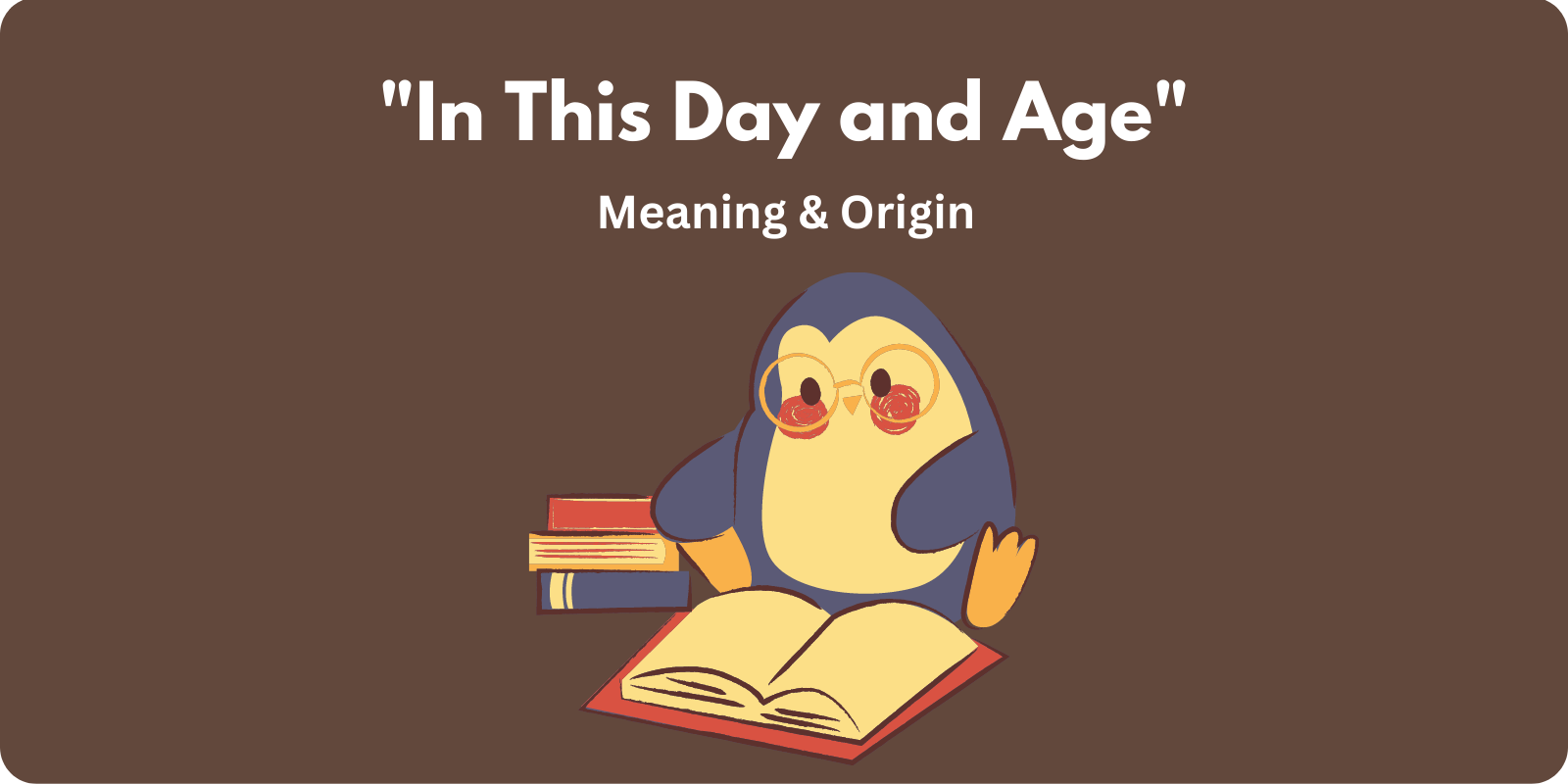Let’s discuss the famous phrase “‘Tis the season:”
- ‘Tis is just shorthand for “it is,” originating in the mid-16th century.
- The abbreviation gradually fell out of favor after the 18th century.
- The expression “T’is the Season” gained popularity after appearing in the song “Deck the Halls” in 1862, played annually as a prelude to Christmas.
- Typical usage of the phrase is generally exultation at the onset of the winter holidays, widely recognized as a time of joy and giving.
- Sometimes people use the phrase ironically when something that exemplifies negative behaviors occurs during the holiday season.
The English language has evolved quite a bit over the centuries, and modern English looks considerably different from what history now remembers as “Middle English” during the 12th through 15th centuries. Old English, which existed around the years 450 and 1200, is virtually unrecognizable today.
New words and expressions appear, and others fall out of common usage, becoming relics of a previous time, making room for new slang and abbreviations and a whole of innovative technological jargon. However, a remnant of the past occasionally resurfaces, fulfilling a need or providing a quaint way to express an idea.
One such example is “Tis the season,” which sounds antiquated today but is still widely used during a particular time of year.
What Does ‘Tis Mean?
The primary reason for the old-school vibe for “’tis the season” is the first word. “‘Tis” became popular as far back as the 16th century and is just an abbreviation for two words: it and is.
This shorthand form appears regularly in classic literature. For example, two lines of Lord Alfred Tennyson’s In Memoriam, A.H.H. bring us an expression famous still today:
- ‘Tis better to have loved and lost,
Than never to have loved at all.

In most cases, however, this now appears as a question for careful consideration, modernized using the longhand form, inverted for use in the interrogative form:
- Is it better to have loved and lost than to never have loved at all?
The past tense abbreviation, “’twas,” also enjoys modern recognition due to popular literature. Of course, this shorthand represents “it was.”
One prominent example comes from the poem “Jabberwocky,” which appears in Lewis Carrol’s sequel to Alice in Wonderland, called Through the Looking Glass, as a playful, mostly nonsensical poem about a fearsome beast:
- ‘Twas brillig and the slithy toves did gyre and gimble in the wabe
While many of the words in the poem’s first line are made up, “’twas” isn’t one of them! It stood for its intended meaning: “it was.” As to the rest of the unfamiliar words, you can assign your own meaning or refer to Lewis Carrol’s explanation if you wish to pursue your research further (and you should – the poem is fantastic!).
Origin and Meaning
Despite “’tis” falling out of favor during the 19th century, it was then that our target phrase was born, appearing in the 1862 Christmas song “Deck the Halls,” which is a seasonal favorite still today. Even though the music had existed in one form or another for centuries, the English lyrics were new.
Early in the song appears the following stanza:
- Deck the halls with boughs of holly,
- Fa la la la la, la la la la,
- ‘Tis the season to be jolly
- Fa la la la la, la la la la
Despite its popularity, people did not begin using “’tis the season” until over a century later, likely within the 1970s, when advertisements and newspaper articles began to spur an encouragement of the holiday spirit through its usage. It then entered the mainstream, with people using it to refer to the entire holiday season from Thanksgiving to New Year’s, although many people reserve the expression solely for Christmas.
The traditional intent is to inspire people to (as the song suggests) be jolly. In other words, they mean it as an amiable sentiment to remind people of the joy inherent in the season and the atmosphere of giving, to offer a sense of good cheer.
Interestingly, “’twas” made its popular Christmas debut even earlier, as the first word of the famous Christmas poem “‘Twas the Night Before Christmas,” in 1823. As a result of this holiday usage, both archaic abbreviations remain alive in the common era.
Ironic Usage of the Phrase
Unfortunately, every Christmas has its Scrooges and not every use of “’tis the season” is intended jovially. As shoppers battle each other for deals during Black Friday or exhibit selfish or rude behavior during the holidays, some shift the tone of the phrase to sarcasm, pointing out this folly in human behavior.
- As Thomas watched the children fighting over the doll, he muttered, “‘Tis the season.”
- “‘Tis the season,” Nicholas scoffed, staring at the crowd of people jostling one another to gain access to the busy store.
- Closing the browser displaying her dismal bank account total, Virginia sighed, “‘Tis the season.”
When used this way, people often point out the negative aspects of the holidays, including the significant expense, increased retail endeavors, and general selfishness and disrespect that take place during a time traditionally about giving and being kind to one another, especially the less fortunate.
The Bottom Line
Despite the occasional “Bah humbug,” the holidays are generally a cause for celebration and joy, and few things embody this “season” than traditional Christmas songs, television shows, and stories. Perhaps this is why people gravitate to expressions such as “’tis the season” even though the phrasing is out of date; these expressions are an embodiment of the holiday spirit and are indicative of earlier times, where it often seems that the Christmas Spirit was more genuine, and people were more concerned with showing their love and appreciation for family and friends than with the hottest deals of the season.
Whatever the reason, “Deck the Halls” is a winter mainstay, and this shows no sign of changing, so whether you like it or not, you are sure to hear “‘Tis the season to be jolly” again, if not on the T.V. or radio, then certainly through the sound system of a popular retail store.






